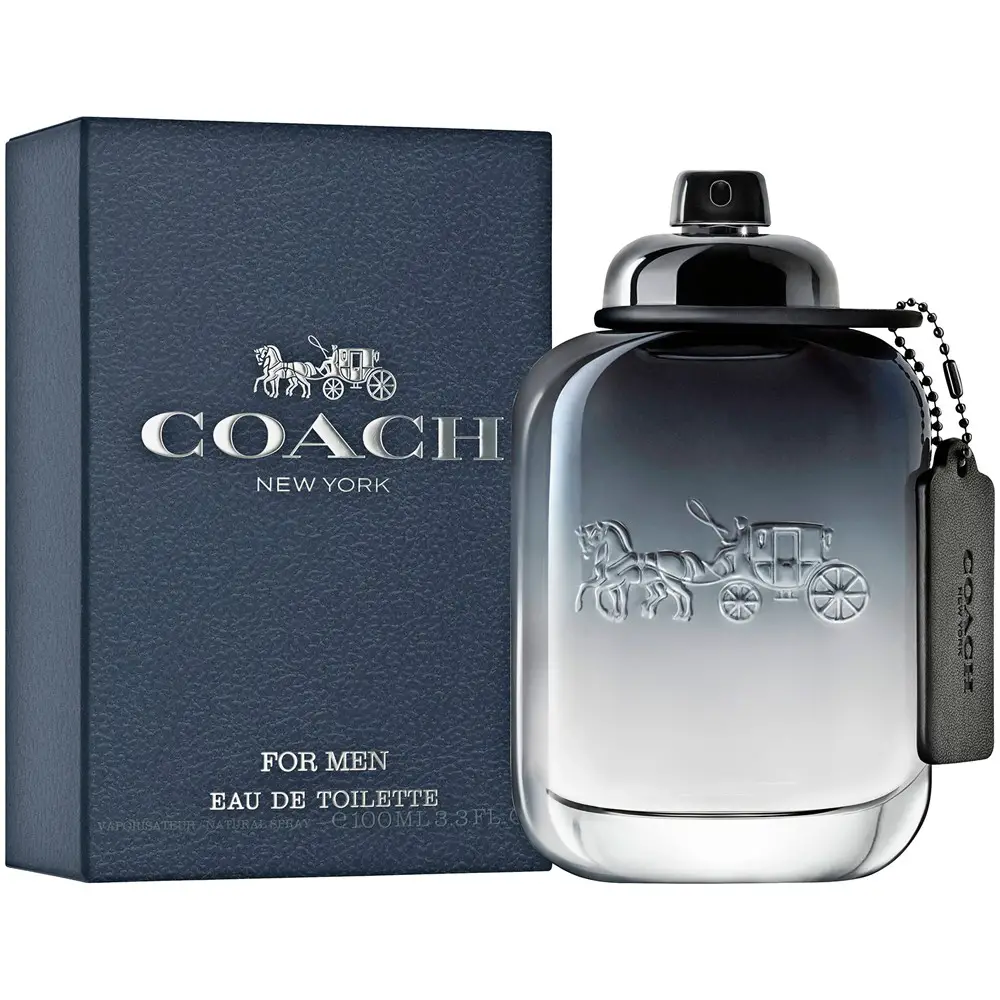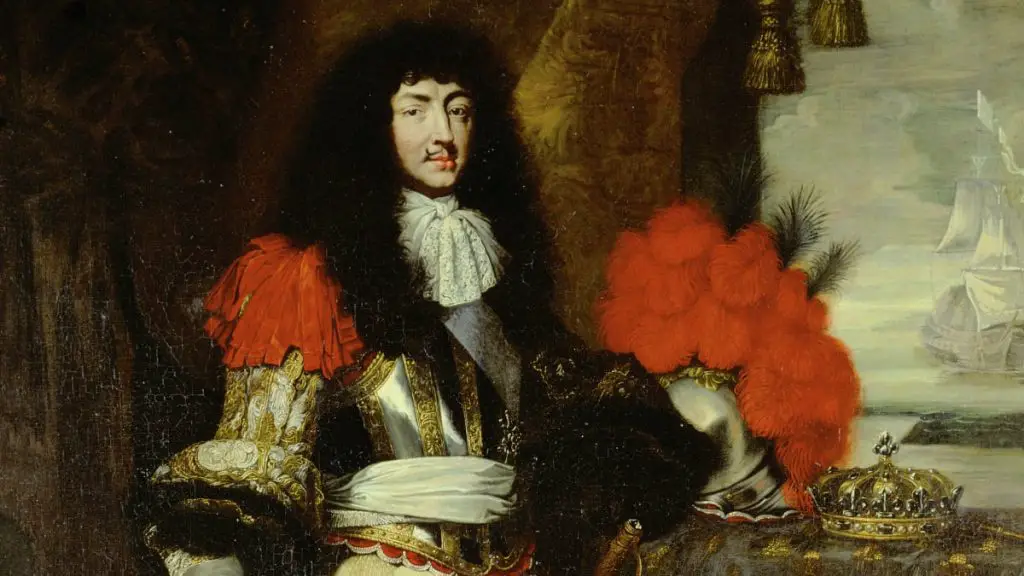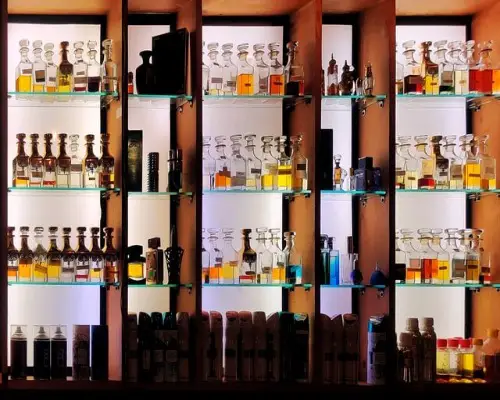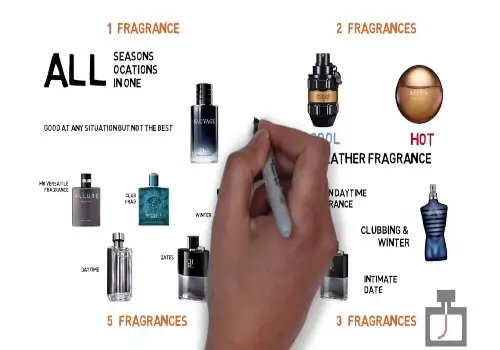If you're a newbie just starting to discover the world of colognes, you will typically hear different words unfamiliar to you. Men have had this special relationship with scents for centuries, primarily representing indulgence, luxury, and pleasure.
However...
Like many others, you might wonder, why is cologne called toilet water? Although the English name doesn't sound as elegant as the French term, toilet water and cologne are essentially the same.
Please keep reading as we discover more about its history and better understand the more emotional senses of smell.
Page Contents
The Origin Of Eau De Toilette As Aromatic Water

Queen Elisabeth of Hungary was the first to introduce Eau de toilette in the fourteenth century. A Hungarian Man created it for her majesty, which consists of rosemary-scented water mixed with alcohol to last longer on her skin.
It was called "Water for the Queen of Hungary," which means "Eau de la Reine de Hongrie."
English speakers borrowed the French word toilette in the sixteenth century but settled on a different spelling. The word toilet was initially used for a wrapper and later for a cloth put over the shoulder while shaving or dressing the hair.
Mostly, men, those days are so vague in their choices when it comes to clothing and fragrances.
During the early 1700s, King Louis XIV used floral and spicy scented water to create a concoction. He used this concoction, consisting of aromas like rose water, orange water, musk, and a few other spicy aromas, to perfume his clothing.

He called this perfume the heavenly water, a men's fragrance that makes eau de toilette or toilet water. Toilet water, also called plague waters, was used to dispel the bubonic plague throughout the fourteenth and sixteenth centuries.
It was in 1905 when people believed that citizens used toilet water spray to cast away negative energies. That same water also helped restore their businesses in social and personal situations.
They tried various essential and citrus oils on their cologne as time passed. Eau de Toilette is well-known as aromatic waters that perfume the body and hair.
Toilette was a common word in English but has fallen out of fashion recently. Eau De Toilette, like all fragrances, is a mixture of intensely scented oils, alcohol, and a small amount of water.
Toilet or aromatic water is a less concentrated version of a pure perfume called eau de toilette.
A blend of ethanol, water, and scented essential oil, eau de toilette is less intense than eau de parfum. It is a lightly scented cologne that feels refreshing.
Eau de toilette got its name from a complex and expensive product created from fabric by perfumers centuries ago. This toilet water was added with perfume for months, made into a sponge-shaped object, and used dry to cleanse, refresh, and scent the body.
During the development of the guild of gantier-parfumeur and the increased use of scent, formulas were added to alcohol and used the same way.
Technically speaking, the theory that the toile impregnated by fragrance gave birth to the modern eau de toilette makes sense.
The term toilette centuries ago predates the Middle English toile. It indicates that the very association between toilette and cleanliness may be due to the early history of the fragranced toile.
Often mistranslated, the French word eau de toilette in English is toilet water; the term toilette originated from toile, meaning dressing room and washroom.
In the seventeenth century, the word toilette referred not only to the space but also to the process of applying make-up, getting dressed, getting ready, etc. Toilette is also well-known as faire sa toilette.
The fragrance is excellent if you only want a light aroma to refresh the skin. You can use Eau de toilette daily, and it's more affordable than any other perfume oil on the market.
The word "Toile" on the first part of the word "Toilette" means cloth in French; toilette to a small piece of cloth. Particularly in today's industry, there are different types of perfume, Eau de toilette, Eau de Parfum, and Eau de cologne.
These scents came from concentrated perfume oils. In comparison, Eau de toilette has a lighter scent and lasts only a couple of hours. Today Eau de Toilette is used as a substitute for more potent fragrances for men and women.
The concentration levels of Eau de Toilette are higher than Eau de Cologne but lower than Eau de Parfum. It usually contains five to fifteen percent of the perfume composition.
The Longer Lasting Scent
Eau de parfum is composed of ten to twenty percent aromatic compounds. It means that such a percentage of the perfume consists of perfume oils, while eighty to ninety percent has high alcohol content.
The typical Eau de Parfum is fifteen percent perfume; most women prefer this perfume for long-lasting effects and higher concentrations of fragrances.
Eau de cologne originally is the term for a very light concentration of perfume oils, usually two to four percent.
Perfumes are longer lasting and more intense than Eau de Cologne. Women want a simple and delicate aroma so they can use it daily as a skin freshener.
The Proper Application Of Fragrances
Typically, you spray Eau de Toilette on your pulse points, which should last eight hours. In some cases, you don't have to re-apply continuously. Alternatively, you can create an airborne cloud and pass it after spraying your EDT.
Nevertheless, many experts consider this cologne application ineffective; ensuring that your clothes or jewelry remains undamaged is the only good thing about such a practice.
After spraying your perfume on the skin, you can apply it to your clothes to intensify the sillage (the scented trace you leave behind). Then apply perfume to pulse points, gently spraying three to six inches away from your skin.
Any place in your body that runs a little hot will work; a bit on the wrists and the neck is enough. For the best and long-lasting result, spray your perfume on fabrics made of natural materials like cotton, cashmere, silk, wool, or linen.
An Eau de parfum contains more fragrant oils, making it a stronger perfume than Eau de toilette with lower concentration. Generally, the perfume concentration mixed with alcohol makes Eau de Parfum different from Eau de Toilette.
A well-suited application of Eau de Cologne or Eau de Toilette requires three to four sprays without worrying about harming your skin.
But if you prefer heavy scents with the highest concentration, Eau de Parfum or Perfume is more suitable, with one or two sprays in your body.
Eau de toilette or eau de cologne has a much lower concentration of fragrant oils than pure perfume. If you require a more delicate scent to refresh your skin, this fragrance comes from a French phrase meaning "getting ready."
Dapper Point: Now that you know the story behind the cologne, it's time for you to know why men wear cologne at work. Going to work is not like going on a hot date where your fragrance is almost everywhere to catch a woman's attention! We prepared an article revealing why this is so -- Why Do Guys Wear Cologne To Work.
Watch This!
Making A Practical Choice Between Eau De Toilette And Eau De Perfume
Several factors may influence our choices in varying fragrances depending on individual preferences. All colognes and perfumes have unique pros and cons, but toilette is more suitable if you're looking for an affordable day-to-day option.
However, perfumes have concentration levels that make them more suitable for individuals with sensitive skin who also prefer longer-lasting aromas.
Fragrances can be very personal. You can relate them to specific memories. Likewise, emotions have meanings; hence, the scents you use make up your character. Like when you opt for Eau De Toilette, Eau de Toiletries are lighter but more concentrated scents for those unaware.
Eau de toilette concentrations range between five and twenty-five percent. The perfume lasts approximately three to six hours, while toiletry products have the same concentration as perfume, containing about ninety percent aroma.
Since the 1700s, perfume bottles mostly have a glass material for all types of aromas. Experts say that a glass perfume bottle can maintain perfume concentration for longer.
In some parts of the world, like in the middle east, the scent is an essential part of the beauty routine for men and women alike.
Many individuals believe that lavender, orange flower, musk, and spicy notes have medical benefits, and you may also benefit from these aromas for other domestic situations.
The most important takeaway from all these is that the concentration of fragrance means very little.
If anything, all these references are a rough guide, so you'll know what to expect when it comes to the underlying structure of a fragrance. An eau de toilette for one company can be the same as an Eau de parfum for another company.
It can be expensive perfume, perfume extract, concentrated, or the less-concentrated form.
You have to see every fragrance distinctively and don't assume that a higher concentration will mean better longevity or quality of perfumes. Your choice of scent must complement various occasions.
Go for aromas suitable for your attire and personality.
A timeless fragrance is best; you can wear it during the day, for work, or on special occasions such as date nights, parties, weddings, or birthdays. Ensure that it's a head-turner for everyone you meet.
Watch This!
Frequently Asked Questions
How does cologne differ from toilet water?
Cologne and toilet or so-called eau de toilette water are part of the perfume industry, and both are called fragrances. The difference between them is the intensity of their essential oils. Cologne has two to four percent concentration, while eau de toilette has five to fifteen percent. Both last two to four hours, and you may re-apply these colognes when necessary.
Why is a perfume called toilet water?
So, why is a perfume called toilet water? It might confuse several individuals. Toilet water is a type of perfume that has a lightly scented fragrance. The term toilette has a French origin, meaning "grooming water".
Using colognes as body splash and as part of a grooming regimen is why perfume is also known as toilet water. Back in the day, toilet water, also called "plague water," effectively dispels the bubonic plague.
Should I buy Eau de perfume or Eau de toilette?
A well-suited choice of fragrances is a matter of user preference, as both have advantages and disadvantages. Eau de toilette is a more affordable and lightly scented fragrance. On the contrary, perfumes cost more but have a higher concentration of fragrance.
Read Also: Top-Rated Colognes for Black Men
Conclusion
Our personalities influence the type of perfume we choose, whether Eau de toilette, Eau de cologne, or Eau de Parfum. Either way, all these are unique aromas.
It's up to you to decide if budget or long-term use is more critical for you to consider. Fragrance plays a significant role in our lives, culture, status, and beliefs; our sense of smell is a gift to appreciate and remember memories.
Spritzing our favorite perfume or cologne can go a long way on our first date, job interviews, job promotions, parties, weddings, and other social gatherings.
It enhances our emotions, uplifting our spirits positively and making us happy when we smell a pleasing fragrance in the air.
Read Also: Does Cologne Freeze?



